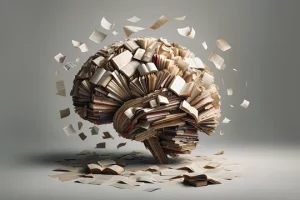By Kamlesh Tripathi
 Chinese writer and scholar Yu Qiuyu says the biggest reason we read is to rid ourselves of mediocrity. Mediocrity is an attitude that passively seeks ways of survival. Mediocre people do not store anything. They are just nonchalant about the excitement in this world, the length of human history, the sacredness of ultimate justice, or the profound meaning of life. They are missing out on something that no one can ever gain in their limited life experiences.
Chinese writer and scholar Yu Qiuyu says the biggest reason we read is to rid ourselves of mediocrity. Mediocrity is an attitude that passively seeks ways of survival. Mediocre people do not store anything. They are just nonchalant about the excitement in this world, the length of human history, the sacredness of ultimate justice, or the profound meaning of life. They are missing out on something that no one can ever gain in their limited life experiences.
Chinese scholar Huang Shangu once said, “A mind without the enrichment of ancient and present experiences will in the long run become vulgar. One’s reflection in the mirror will look repulsive, and their speech will sound tasteless in front of people.” This is the face of mediocrity.
 Only books can bring the expansiveness of space and infiniteness of time in front of you; only books can direct the already flying signals of the noble life towards you; only books can present to you the profound wisdom in that wonderful contrast against ignorance and hideousness. For a five-foot-tall being to be able to course through time and extend beyond the spaces within just a few short decades, such a miracle should be attributed mostly to the action of reading.
Only books can bring the expansiveness of space and infiniteness of time in front of you; only books can direct the already flying signals of the noble life towards you; only books can present to you the profound wisdom in that wonderful contrast against ignorance and hideousness. For a five-foot-tall being to be able to course through time and extend beyond the spaces within just a few short decades, such a miracle should be attributed mostly to the action of reading.
 What is the joy of reading throughout the four periods? The Song Dynasty 960-1279 was culturally the most brilliant era in later imperial Chinese history. Scenic mountains shine upon railings while water encircles the corridors; Upon returning from the prayer for rain I recite poems as I bathe in the fragrant spring breeze. Birds sitting atop branches are also friends; while fallen flowers on the water are all literary works. Waste not the prime of life, for youth, will fade into old age; the greatest pleasure in life is to read. How is the joy of reading experienced? It is like the uncut green grass that fills up your window scene …. Manuscripts of Yipiao.
What is the joy of reading throughout the four periods? The Song Dynasty 960-1279 was culturally the most brilliant era in later imperial Chinese history. Scenic mountains shine upon railings while water encircles the corridors; Upon returning from the prayer for rain I recite poems as I bathe in the fragrant spring breeze. Birds sitting atop branches are also friends; while fallen flowers on the water are all literary works. Waste not the prime of life, for youth, will fade into old age; the greatest pleasure in life is to read. How is the joy of reading experienced? It is like the uncut green grass that fills up your window scene …. Manuscripts of Yipiao.
 But how do you use books? Zhang Chao, born in 1650, during the Qing dynasty said that collecting books was easy, but reading them was difficult. Reading books is easy, but studying them is difficult. Studying books is easy, but applying them is difficult. Applying it is easy, but remembering is difficult.
But how do you use books? Zhang Chao, born in 1650, during the Qing dynasty said that collecting books was easy, but reading them was difficult. Reading books is easy, but studying them is difficult. Studying books is easy, but applying them is difficult. Applying it is easy, but remembering is difficult.
You Meng Ying (Quiet Dream Shadows) is a collection of miscellaneous sayings of the early Qing writer Zhan Chao. There it’s mentioned that those who have reading, are fortunate. Those who have the power to aid others are fortunate. Those who have the knowledge to write, are fortunate. Those who  remain unaffected by gossip, are fortunate. Those who have famous, honest, and forgiving friends, are fortunate.
remain unaffected by gossip, are fortunate. Those who have famous, honest, and forgiving friends, are fortunate.



